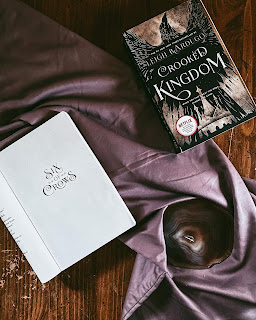The Girls in the Stilt House Book Review
The Girls in the Stilt House
*Warning: This review contains spoilers*
Introduction
This is a solid historical fiction novel and a decent modern take on southern gothic. If you like historical fiction and a more literary style of writing, you’ll probably really enjoy this. If this isn’t your genre though, I don’t think the book really transcends any hard genre lines to compel you.
Review
Set in the 1920s in Mississippi, the novel focuses on two young women, Ada and Matilda. Ada is a white woman and Matilda is a Black woman, and being that the novel is set where and when it is set, obviously racism and the legacy of slavery and segregation plays a large thematic role in the story. The focus of The Girls in the Stilt House is largely the friendship and bond that forms between Ada and Matilda. However, one of the things that I really appreciated that Mustian did with this story is not ignoring the realities of the story’s setting, or pretending like Ada was some perfect white ally for whom the racism and prejudices of her culture didn’t impact. She’s flawed, and while she does see Matilda as a friend, she definitely doesn’t always treat her like an equal.
Some people may be put off by this and not want to read a book where racism plays a role, and I think that’s fair. There’s enough racism in real life after all. But I think it would have been generally tone-deaf and tasteless to have the audacity to set a story in the 1920s American South, and then ignore racism like it wasn’t happening.
This comes through a lot in the way that Ada’s relationship with Matilda begins and develops. Ada has a baby out of wedlock, and through extenuating circumstances, Matilda ends up living with her and helping out as a caretaker. While from Ada’s perspective, it does lead to some genuinely emotional moments where two women become friends and one helps the other care for her baby after she’s lost her family and place in society. However, the story is much more complex than that because it trails off America’s history of enslavement—in which Black women were often forced to be wet-nurses for white women’s infants—and it adds a bad aftertaste to the initial presentation of Matilda and Ada’s friendship. It isn’t just women supporting women, as a more surface level examination of the plot might have you believe. Ada is, even if it’s subconsciously and not intentionally, treating Matilda like she’s the help, not like a true friend, and she even comes to expect it. It forces Ada into an arc where she has to learn that it is not Matilda (or anyone’s) responsibility to take care of her, and it also puts Matilda in an arc where she has to learn to put herself first—as best as she can in the racist and misogynistic culture she’s in.
A story like this probably would have been a lot more impactful had it been written by a Black woman, but at least Mustian is not trying to prop up the plot as a shallow depiction of feminism. She’s actually acknowledging the cracks in the surface depiction of the relationship between the two women.
Mustian also does a good job at showing the ways that misogyny affected both women in a place and time where sexism was not only rampant but socially acceptable, but not pretending that misogyny impacted white women and women of color in the same way.
Ada gets shunned from her family and essentially loses her entire societal standing just because she had a baby with a man that she was not married to (the man who fathered the baby, of course, not suffering the same consequences for getting a woman who was not his wife pregnant). It’s a classic example of the way society sought to police women’s bodies and force them into roles as housewives. She also has to deal with a horrific, abusive father whose terrible behaviors as essentially accepted by society. That being said, Ada still had a very privileged upbringing and never had to deal with the hardships that Matilda suffered due to the legacy of American slavery, her life of poverty, segregation, racial prejudice on top of sexism, and the even more difficult struggle she has building a life for herself having to overcome both racism, misogyny, and its intersectionality.
Final Thoughts
Overall, I would give The Girls in the Stilt House 3.5 out of 5 stars. It’s well written, heartfelt, and atmospheric with good thematic concerns. It’s a been slow and tends to drag in certain places though. It also could have been stronger if it had been co-written by a Black woman to help handle Matilda’s storyline.


Comments
Post a Comment